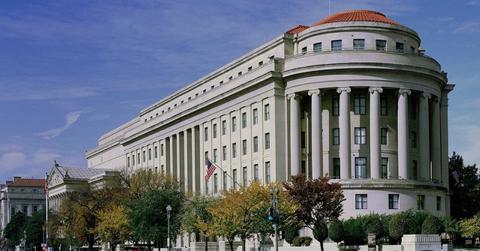Proposed FTC Merger Guidelines Come Hours After MSFT-ATVI Announcement
The FTC is overhauling merger guidelines for major companies. What changes are on the table? The new guidelines come right after the MSFT-ATVI merger announcement.
Jan. 19 2022, Published 10:40 a.m. ET
Lina Khan, the head of the FTC (Federal Trade Commission), is making good on her promise to rid the U.S. of anti-competitive monopolies. Hours after Microsoft (NASDAQ:MSFT) announced that it will acquire video game maker Activision (NASDAQ:ATVI) in a massive $68.7 billion deal, the FTC and DOJ (Department of Justice) slammed a coordinated proposal on the table that could alter the merger landscape.
What merger rule changes are the FTC and DOJ proposing? Could the changes impact acquisitions that are already set in motion?
The FTC proposal came hours after a massive gaming merger announcement.
Known for games like Call of Duty and World of Warcraft, Activision is reportedly getting swooped up by Microsoft, with the tech giant buying out ATVI shares at $95 a pop.
Hours after the two companies dropped the announcement, the FTC said it will be revising merger rules for U.S. companies. It isn't clear whether the Microsoft announcement has anything to do with this, but the timing is apropos. Khan has been adamant about overhauling merger rules since she stepped into the FTC chair role in June 2021.
What do the FTC and DOJ say about merger rule changes?
The FTC and the DOJ’s Antitrust Division have proposed rule changes that would strengthen enforcement against illegal mergers. “Recent evidence indicates that many industries across the economy are becoming more concentrated and less competitive—imperiling choice and economic gains for consumers, workers, entrepreneurs, and small businesses,” the organizations wrote.
Merger filings more than doubled from 2020–2021, a juxtaposition of conglomerates like Johnson & Johnson and General Electric that are breaking up.
What merger rule changes could the FTC employ?
Any potential rule changes would prevent mergers that could significantly reduce competition or create monopolistic environments.
Since merger guidelines first came into effect in the U.S. in 1968, various updates have come to fruition. These updates reflect two forms of consolidation:
Horizontal mergers are transactions within the same market.
Vertical mergers are transactions within the same supply chain.
The new rules will likely update this framework to fill in the gaps for other types of transactions that fall outside of the horizontal and vertical delineators and escape regulation.
Why does the FTC need your help?
Ahead of the rule changes, the FTC welcomes public input. Anyone interested in communicating with the FTC can visit Regulations.gov to find the form.
The agencies specifically call out “market participants, government entities, economists, attorneys, academics, unions, employees, farmers, workers, businesses, franchisees, and consumers” to share feedback, ideas, and evidence of merger impact.
The agencies are seeking input on existing standards, market definitions, and anticompetitive presumptions. They also want to hear about threats to competition that could be flying under the radar, the impact of monopolies in the real world, and how digital markets fit into it all.
People have until March 21, 2022, to submit feedback. From there, the FTC and DOJ will coordinate a plan to update merger guidelines for the U.S.
Will the new guidelines impact existing mergers?
As long as Microsoft manages to finalize its acquisition of Activision soon, it should be in the clear. However, there’s still a chance that the FTC could slam down the deal. Other multi-billion dollar mergers and acquisitions might be in trouble moving forward.
Khan said, “Illegal mergers can inflict a host of harms, from higher prices and lower wages to diminished opportunity, reduced innovation, and less resiliency.” For that, she's fighting to actualize a truly competitive market that keeps up with the times.


